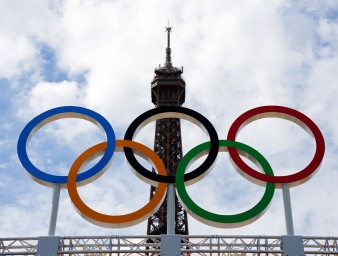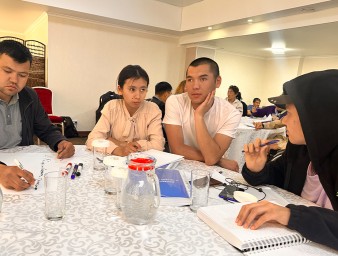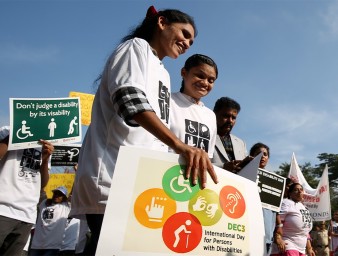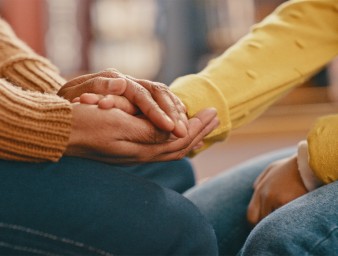Campaigner champions accessibility and visibility for all
03 December 2021
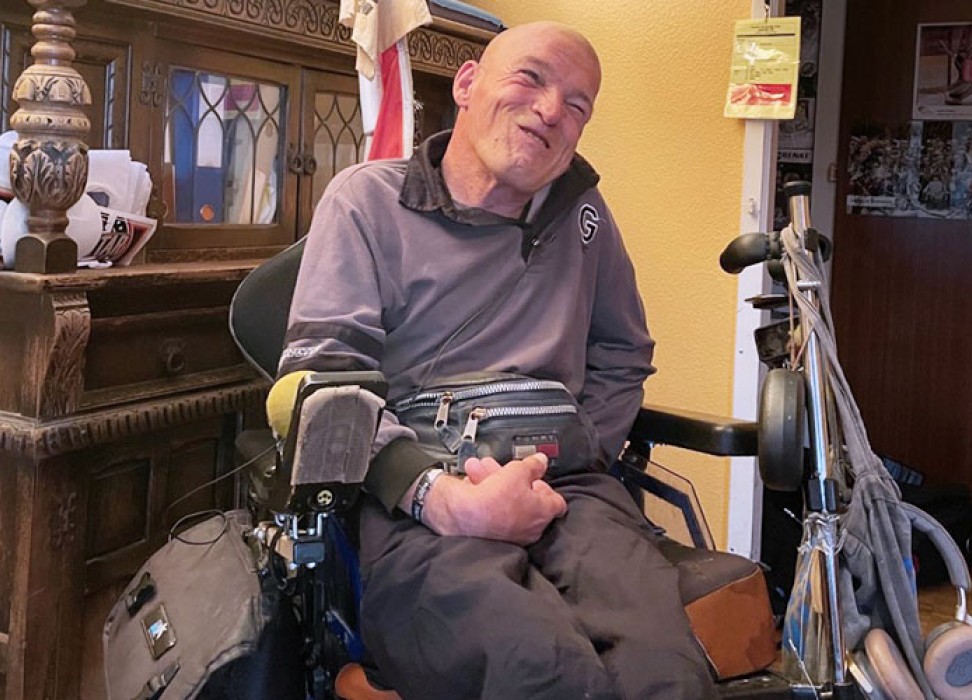
Gaining access to public services for himself and others has been a more than 30-year personal mission for Eric Grassien.
“I made demonstrations in Bern and other places at that time, between 1991 and 1999 for my everyday life, for mobility.
Grassien was a hockey player until he acquired an impairment in 1989. His new life in a wheelchair opened a new world and his new purpose was to fight for accessibility for himself and everyone else.
“I contacted the railroads, and the streetcars,” he explained. “I also contacted a hospital in Bern saying that the toilets were inaccessible for me and for others; the toilets were too small. I could enter but I could not close the door.”
Grassien’s single-minded efforts on fighting for equality, in particularly access for people with disabilities – is all part of his goal to ensure his voice his heard and people with disabilities are not ignored or stereotyped.
“I want to be seen… (It is important to) be seen, everywhere, be accepted too,” he said. “People by seeing us, they think well of us.
You have to show the issue, show the real things, and ask people in wheelchairs when there are important (public works projects). They know better the problem of mobility.”
Spending the day being visible
Following Grassien around Geneva was an exercise in agility and a study in popularity. Everywhere he went, he was greeted – shopkeepers, café owners, individuals walking down the street. Grassien negotiated obstacles and call-outs swiftly in his motorised wheelchair – visibly calling attention to places where access was easy and those where it was difficult. From shop owners to restaurants to the Geneva public transport system, his mission is to ensure accessibility for all.
Facundo Chavez Penillas, UN Human Rights Advisor on the rights of persons with disabilities, called involvement like Grassien’s key to changing the lives.
“Participation is key for change in attitudes around persons with disabilities,” he said. “Moreover, what needs to be supported is that people with disabilities can be part of societies on an equal basis with others.”
The importance of being seen
The Convention on the rights of persons with disabilities, notes that by 2050, persons with disabilities will make up 15 percent of the urban population – a figure of around 937 million. At the moment, persons with disabilities still face widespread difficulties with accessibility to some of the basics of social inclusion – including housing, transportation and public buildings and spaces.
Chavez Penillas said increased visibility and participation of this population can help improve not only access, but opinions.
“To be seen is very important for people with disabilities,” he said. “Unfortunately, people with disabilities have been excluded from community living and from being part of society for too long. And the consequence of this is that people have no direct experience of what it is to be a person with disability and how persons with disabilities can contribute to enriching everybody’s life.”
Grassien said he will continue raising his voice for policy makers and the public to change their views.
“I would like the law to be applied, first of all, so that things are done in accordance with the standards in all the countries of the world,” he said. “(So) whether in Africa or India, or anywhere else, people have access.”
December 3 is the International Day of Persons with Disabilities. This story is part of a series to celebrate Human Rights Day 2021, under the theme “Reducing inequalities, advancing human rights.” Join us to help spread the word that we are all human, and all equal.
Watch Eric Grassien’s story in the video below
VIEW THIS PAGE IN:
